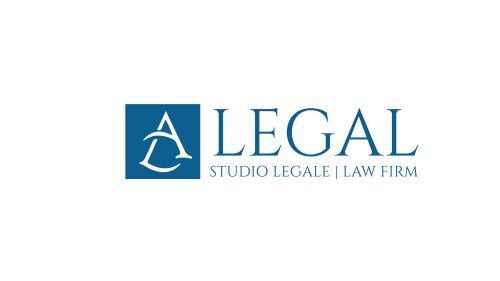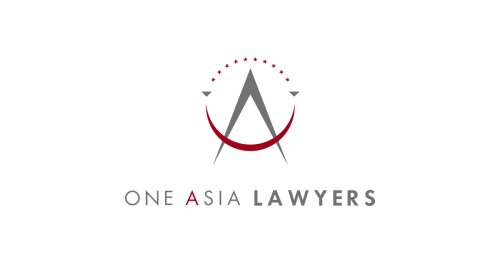Best Art & Cultural Property Law Lawyers in Watthana
Share your needs with us, get contacted by law firms.
Free. Takes 2 min.
List of the best lawyers in Watthana, Thailand
About Art & Cultural Property Law in Watthana, Thailand
Art and Cultural Property Law in Watthana, Thailand focuses on the legal protection, ownership, and transfer of cultural assets. This field regulates how artworks, antiques, monuments, and other cultural artifacts are managed, preserved, and sometimes exported or imported. With its vibrant creative scene and numerous galleries, Watthana is a center for contemporary and traditional art, making these laws especially relevant for collectors, dealers, artists, museums, and the general public.
Why You May Need a Lawyer
Individuals and businesses in Watthana may require the assistance of a legal professional specializing in Art and Cultural Property Law in various situations. Common scenarios include disputes over ownership of artworks, questions about the authenticity or provenance of a piece, inheritance issues for art collections, negotiating gallery or auction contracts, and handling cases of stolen or illegally exported cultural property. Additionally, anyone buying or selling art or cultural objects would benefit from legal advice to comply with local and international regulations and to protect their interests.
Local Laws Overview
Thailand, including the Watthana district, upholds several laws and regulations that govern the protection and management of art and cultural property. The primary legislation is the Act on Ancient Monuments, Antiques, Objects of Art and National Museums B.E. 2504 (1961), which outlines obligations regarding the registration, export, and custody of specific artifacts and antiques. Furthermore, restrictions exist on the movement of sacred or historically significant objects, particularly Buddhist statues and antiquities, which generally require government approval for export. Intellectual property laws, such as copyright, can also be significant when dealing with modern art. Violations can result in fines, confiscation, or other penalties as stipulated by these laws.
Frequently Asked Questions
What qualifies as cultural property in Thailand?
Cultural property can include old religious objects, antiques, works of fine art, historical artifacts, monuments, and any items deemed culturally or historically significant by Thai law.
Do I need permission to export art from Watthana, Thailand?
Yes, exporting many forms of cultural property, particularly antiques or religious artifacts, typically requires permission from the Fine Arts Department and compliance with relevant Thai laws.
How can I check the authenticity of an artwork?
Consulting experts such as certified appraisers, museum professionals, or legal specialists in art law can help verify the provenance and authenticity of an artwork.
What should I do if I inherit art or cultural property?
Inheritance of art or cultural property often involves legal procedures to establish ownership and may require registration or declaration to local authorities, especially for antiques or notable artworks.
What regulations apply to Buddhist statues and religious artifacts?
Buddhist statues and many religious artifacts are subject to strict controls in Thailand. Their export and sale are heavily regulated due to their cultural and religious significance.
Are there protections for contemporary Thai artists?
Yes, intellectual property rights, especially copyright laws, protect modern artworks and provide artists with legal recourse in cases of unauthorized reproduction or sale.
What happens if someone sells a forged piece of art?
Selling forged art can lead to severe legal consequences under Thai law, including civil and criminal penalties. Victims may seek compensation or reversal of the transaction.
Can foreign nationals own cultural property in Thailand?
Foreigners can own art and cultural property, but there are restrictions regarding export and the private ownership of certain national treasures or protected items.
What role do local authorities play in protecting cultural property?
Agencies like the Fine Arts Department oversee the registration, inspection, and authorization related to cultural property in Watthana and throughout Thailand, ensuring compliance with relevant laws.
How can I report stolen or lost art?
Incidents involving stolen or lost art should be reported to local police and the Fine Arts Department, which maintain databases and can coordinate with international bodies if necessary.
Additional Resources
If you need more information, you can contact the Fine Arts Department under the Ministry of Culture, which is the primary governmental body overseeing art and cultural property matters in Thailand. Local museum authorities, the Department of Intellectual Property, and academic institutions specializing in Thai art and law are also valuable resources. The Thai Bar Association may help you locate qualified legal professionals in the Watthana area.
Next Steps
If you need legal assistance with art or cultural property matters in Watthana, start by collecting all relevant documentation about your property and clearly identifying your concerns or objectives. Contact a qualified lawyer specializing in art and cultural property law for an initial consultation. They can help you understand your rights, the applicable laws, and the steps you need to take to resolve your issue. Consider reaching out to local authorities or organizations for guidance, and always ensure that any transactions or agreements involving cultural property are made with proper legal oversight.
Lawzana helps you find the best lawyers and law firms in Watthana through a curated and pre-screened list of qualified legal professionals. Our platform offers rankings and detailed profiles of attorneys and law firms, allowing you to compare based on practice areas, including Art & Cultural Property Law, experience, and client feedback.
Each profile includes a description of the firm's areas of practice, client reviews, team members and partners, year of establishment, spoken languages, office locations, contact information, social media presence, and any published articles or resources. Most firms on our platform speak English and are experienced in both local and international legal matters.
Get a quote from top-rated law firms in Watthana, Thailand — quickly, securely, and without unnecessary hassle.
Disclaimer:
The information provided on this page is for general informational purposes only and does not constitute legal advice. While we strive to ensure the accuracy and relevance of the content, legal information may change over time, and interpretations of the law can vary. You should always consult with a qualified legal professional for advice specific to your situation.
We disclaim all liability for actions taken or not taken based on the content of this page. If you believe any information is incorrect or outdated, please contact us, and we will review and update it where appropriate.











